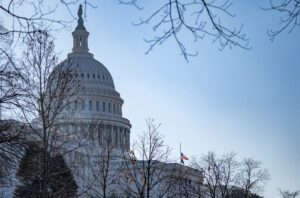The economic crisis caused by the coronavirus pandemic poses a triple challenge for tax policy in the United States. Lawmakers are tasked with crafting a policy response that will accelerate the economic recovery, reduce the mounting deficit, and protect the most vulnerable.
To assist lawmakers in navigating the challenge, and to help the American public understand the tax changes being proposed, the Tax Foundation’s Center for Federal Tax Policy modeled how 70 potential changes to the tax code would affect the U.S. economy, distribution of the tax burden, and federal revenue.
In tax policy there is an ever-present trade-off among how much revenue a tax will raise, who bears the burden of a tax, and what impact a tax will have on economic growth. Armed with the information in our new book, Options for Reforming America’s Tax Code 2.0, policymakers can debate the relative merits and trade-offs of each option to improve the tax code in a post-pandemic world.

D.C. Tax Revision Commission Recommends Major Tax Changes
While some recommendations follow the principles of sound tax policy and may improve the District’s tax climate, some proposals make the tax code more complex and less neutral, potentially disincentivizing investment and business activity.
6 min read
Don’t Ignore the Long Run When Evaluating Corporate Tax Cuts
Do corporate tax cuts boost workers’ wages? The answer depends on your time frame.
4 min read
Tax Files under New Council of EU Presidency: Belgium
In such a determinant semester for Europe, principled tax policy can be an important tool for a more competitive European Union.
5 min read
Which Provisions of the Tax Cuts and Jobs Act Should Be Made Permanent?
Lawmakers should use the year ahead to thoroughly review and debate lasting, fundamental tax reform and prioritize policies that best boost work and investment incentives in a fiscally responsible manner.
4 min read
Spanish Regions Are Not Surrendering Their Tax Competitiveness without a Fight
Spain’s central government could learn some valuable lessons from its regional governments about sound tax policy.
7 min read
Methane Fee to Take Effect in 2024: A Mini Carbon Price
At the beginning of 2024, a fee on certain methane emissions took effect. While insignificant on its own, it is the first U.S. federal-level effort to price greenhouse gas emissions to combat climate change.
3 min read
Governor Youngkin Unveils a New Tax Plan for Virginia
Virginia Governor Youngkin unveiled the contours of a tax reform plan incorporated into his forthcoming budget, which includes three major structural elements: a reduction in the individual income tax rate, a 0.9 percentage point increase in the sales tax rate, and the broadening of the sales tax base to include some “new economy” digital services.
6 min read
European Tax Policy Scorecard: How Competitive is Ukraine’s Tax System Relative to EU Member States?
In the end, the best way for the EU to support Ukraine’s post-war recovery is to guarantee its tax sovereignty, not just its territorial sovereignty.
5 min read
Is the Foreign Pollution Fee Act a Carbon Price?
A national-level carbon price—a tax or cap-and-trade scheme placed on CO2 or other greenhouse gases—may seem distant in the U.S., especially since the Inflation Reduction Act, which included major climate policy, omitted one. However, policymakers on both sides of the aisle have been nibbling around the edges of carbon taxes.
5 min read
What’s the Tea? 250 Years since the Boston Tea Party
Learn more about what really happened leading up to the showdown in the harbor with this educational look through tax history.
3 min read